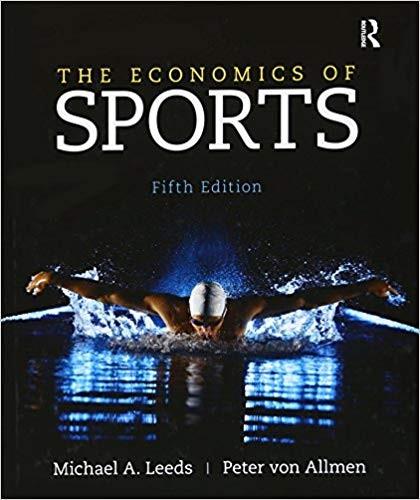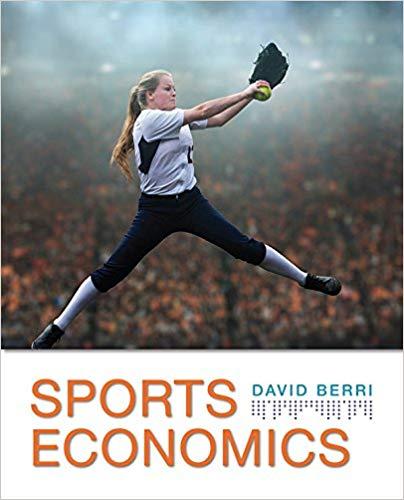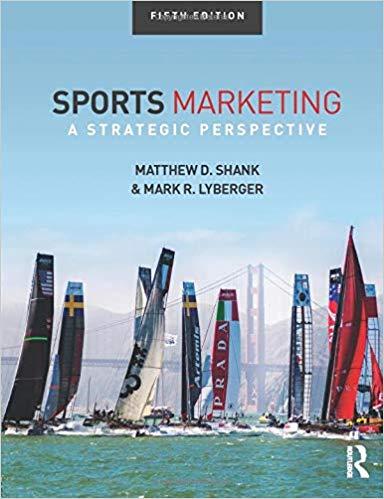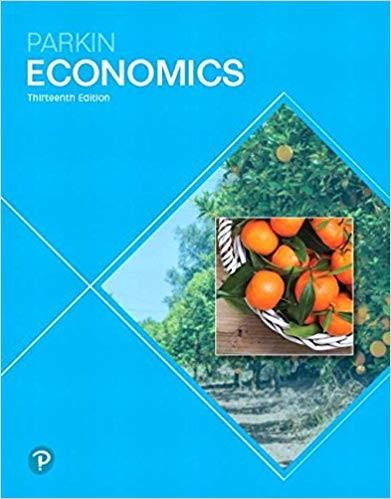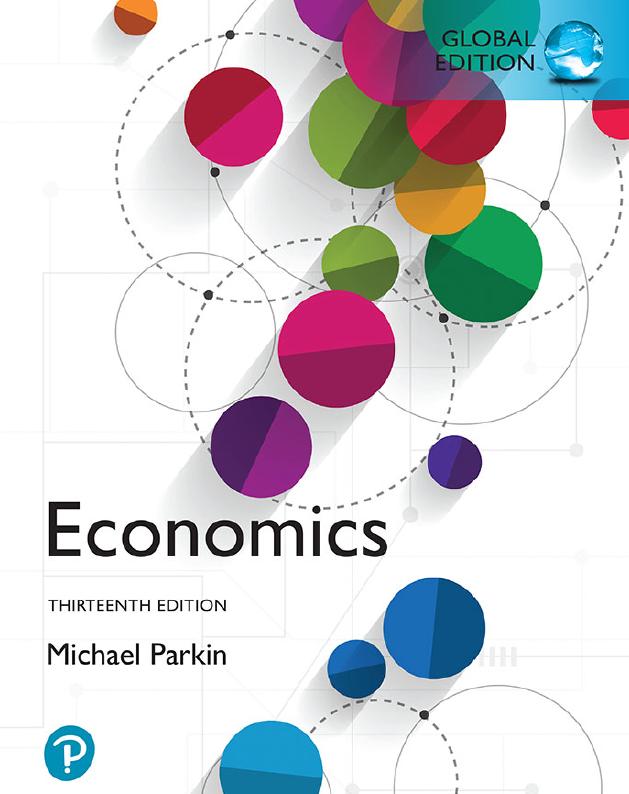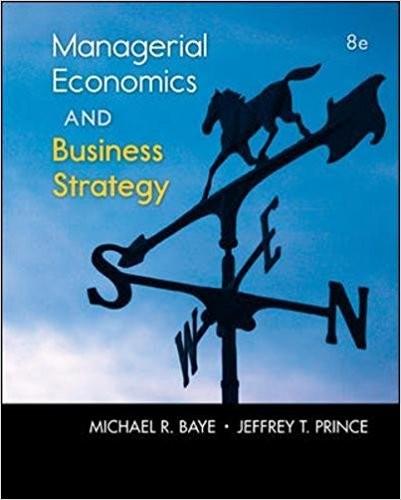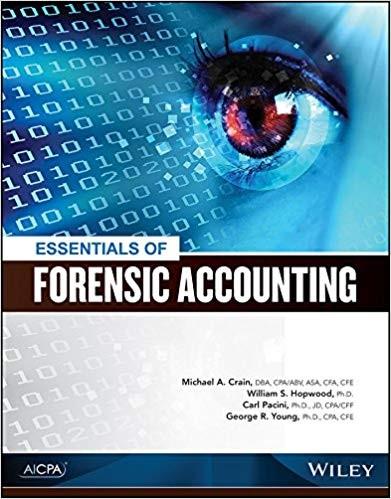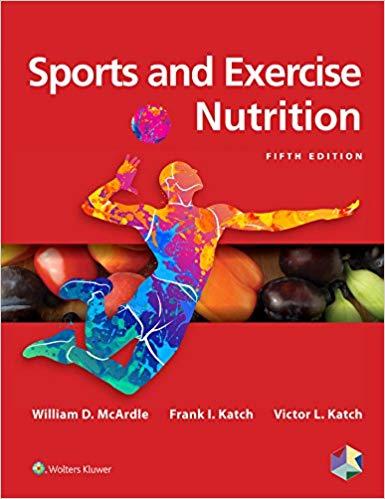CONTENTS
Preface xvii
Part 1 Introduction and review of Economic Concepts 1
Chapter 1 ECONOmICS aNd SPOrtS 3
Introduction 3
1.1 The Organization of the Text 4
Special Features and Additional Resources 5
1.2 Babe Ruth and Comparative Advantage 6
Opportunity Costs 6
Absolute and Comparative Advantage 7
■ Biographical Sketch: Babe Didrikson Zaharias 9
Summary 11 • Discussion Questions 11 • Problems 12
Chapter 2 rEvIEw OF thE ECONOmISt’S arSENaL 13
Introduction 13
Learning Objectives 13
2.1 The Supply and Demand Model 14
Demand, Supply, and Equilibrium 14
Changes in Supply and Demand 17
2.2 Producing Output and the Production Function 27
A Note on the Definition of Output 27
The Production Function 27
Price Ceilings and the Economics of Scalping 30
2.3 Market Structures: From Perfect Competition to Monopoly 32
Perfect Competition 32
Monopoly and Other Imperfectly Competitive Market Structures 34
The Impact of an Increase in Costs 37
2.4 The Rise of Professional Sports 39
■ Biographical Sketch: Silvio Berlusconi 41
Summary 43 • Discussion Questions 44 • Problems 44
2A.2 Using Indifference Curves and Budget Constraints: The Rise of Soccer and Baseball 52
3.5 Soccer’s Alternative Business Model 102
■ Biographical Sketch: Bill Veeck 107
Summary 108 • Discussion Questions 109 • Problems 109
Chapter 4 mONOPOLy aNd aNtItrUSt 111
Introduction 111
Learning Objectives 112
4.1 What’s Wrong with Monopoly? 112 Monopolists and Deadweight Loss 112 Do Monopolies Always Charge Monopoly Prices? 115
Promotion, Relegation, and Monopoly Power 116
4.2 Strategic Pricing and Price Discrimination 117
Variable and Dynamic Ticket Pricing 117 Bundling 120
Price Discrimination and Two-part Pricing 121 Monopoly Stood on Its Head: A Brief Introduction to Monopsony 124
4.3 What’s Right with Monopoly? 125
4.4 Barriers to Entry that Leagues Create 127
■ SportS and the law: Franchise Location 128
4.5 Society’s Response to Monopoly and Monopsony: Antitrust Laws 129
An Important Anomaly: Baseball’s Antitrust Exemption 130 Leagues That Lack an Antitrust Exemption 134 Limited Exemptions: The NFL and Television 135
4.6 The NCAA: An Incidental Cartel 136
4.7 Prisoner’s Dilemma: How Rational Actions Lead to Irrational Outcomes 139
■ Biographical Sketch: Alvin “Pete” Rozelle 142 Summary 144 • Discussion Questions 145 • Problems 145
Appendix 4a OvErvIEw OF BaSIC gamE thEOry 146
An Alternative Application of Game Theory 147
Chapter 5 COmPEtItIvE BaLaNCE 151
Introduction 151
Learning Objectives 152
5.1 Why Fans and Owners Want Competitive Balance 152 The Fans’ Perspective 152
The Owners’ Perspective 153
The Effect of Market Size 154
The Influence of Diminishing Returns 156
A Brief History of Competitive Balance 157
5.2 Measuring Competitive Balance 158
Within-Season Variation 158
Between-Season Variation 162
Illustrating Competitive Imbalance 164
5.3 Attempts to Alter Competitive Balance 167
The Invariance Principle 167
Revenue Sharing 169
Salary Caps and Luxury Taxes 171
The Reverse-Order Entry Draft 173
Schedule Adjustments in the NFL 176
Promotion and Relegation 176
■ Biographical Sketch: Bud Selig 177 Summary 178 • Discussion Questions 179
• Problems 179
Part 3 Public Finance and Sports 181
Chapter 6 thE PUBLIC FINaNCE OF SPOrtS: whO BENEFItS aNd hOw? 183
Introduction 183
Learning Objectives 184
6.1 How Teams Benefit from New Facilities 184 Facilities, Attendance, and Profits 185
6.2 How Fans Benefit from a New Facility 187
The Size and Shape of Baseball and Football Stadiums 188
The Size and Shape of Basketball and Hockey Arenas 194
Do New Facilities Create Better Teams? 196 Teams as Public Goods 197
6.3 How Cities Benefit from Teams, Facilities, and Events 199
Positive and Negative Externalities 200
Facilities, Spending, and Tax Revenue 203
Location, Location, Location 211
The Impact of Special Events 212
■ Biographical Sketch: Al Davis 215
Summary 217 • Discussion Questions 217 • Problems 217
Chapter 7 thE PUBLIC FINaNCE OF SPOrtS: whO PayS aNd why? 219
Introduction 220
Learning Objectives 220
7.1 How Cities Came to Fund Stadiums 220 Teams on the Move 221
The Three Eras of Stadium Construction 222
■ SportS and the law: Who Can Move? 223
7.2 How Teams Exploit Monopoly Power 224 Leagues, Cities, and Market Power 225
The Winner’s Curse 229
7.3 Stadium Location and Costs 230 How Exchange Rates Affect Costs 231
Why Most Stadiums Are Not in the Center of Town 232
7.4 Stadium Costs and Financing 234
7.5 Paying for Stadiums 237 Who Pays a Sales Tax? 240
Incremental Financing 242 Taxes That Spread the Burden 243
The Benefits of Debt 243
■ Biographical Sketch: Williard “Mitt” Romney 246 Summary 247 • Discussion Questions 248 • Problems 248
Part 4 the Labor Economics of Sports 249 Chapter 8
Introduction 251
Learning Objectives 253
8.1 An Overview of Labor Supply and Labor Demand 253 Labor Supply 254 Labor Demand 256
Labor Market Equilibrium 261
8.2 The Economics of Tournaments and Superstars 265
8.3 Tournaments, Cheating, and the Distribution of Income 269
More Potential Pitfalls of High Rewards: The Case of NASCAR 270
Too Much of a Good Thing 272
Performance-Enhancing Drugs 273
The Distribution of Income 277
■ Biographical Sketch: Scott Boras 278
Summary 280 • Discussion Questions 280
• Problems 281
Appendix 8a thE LaBOr–LEISUrE ChOICE mOdEL OF INdIFFErENCE CUrvES 282
The Labor–Leisure Model When Hours Are Fixed 286
Chapter 9 LaBOr markEt ImPErFECtIONS 289
Introduction 289
Learning Objectives 290
9.1 The Monopsony Power of Sports Leagues 290
The Economics of Monopsony 290
The Reserve Clause 292
9.2 Unions in Professional Sports 293
A Brief Introduction to the Economics of Unions 294
■ SportS and the law: McNeil v. The National Football League 299
Salary Arbitration 302
Measuring Monopsony Power 303
Salary Caps 304
Luxury or Competitive Balance Taxes 308
The Impact of Rival Leagues 309
9.3 Labor Conflict and Compromise in Collective Bargaining 311
Comparing the 2011 NBA and NFL Negotiations 315
Professional Tennis Associations 318
■ Biographical Sketch: Marvin Miller 320
Summary 321 • Discussion Questions 322
• Problems 322
Chapter 10 dISCrImINatION 323
Introduction 323
Learning Objectives 324
10.1 Becker’s Theory of Labor Discrimination 326
10.2 Different Forms of Discrimination in Professional Sports 327
Employer Discrimination 327
Does Anyone Win with Employer Discrimination? 332
Employee Discrimination 337
Consumer Discrimination 340
Discrimination by National Origin in European Soccer 342
Positional Discrimination or Hiring Discrimination 344
Gender Equity—A Special Case? 348
10.3 Title IX and Discrimination in College Sports 349
■ Biographical Sketch: Branch Rickey 352
Summary 354 • Discussion Questions 354 • Problems 355 Part 5
Chapter 11 thE ECONOmICS OF amatEUrISm aNd COLLEgE
SPOrtS 359
Introduction 359
Learning Objectives 360
11.1 The Troublesome Concept of Amateurism 360 A Brief History of Amateurism and the Olympic Ideal 360
11.2 The Costs and Benefits of College Athletics 366
The Revenue from Intercollegiate Athletics 366
The Revenue from Bowl Games 369
The Cost of Intercollegiate Athletics 373
Do Colleges Profit from Athletics? 375 Spillovers from Athletics to the University 376
11.3 The Role of the NCAA 380
The NCAA as a Regulatory Agency 380
The NCAA as a Club 382
The NCAA as a Cartel 383
Academic Standards: A Basis of Academic Integrity or Monopoly Power? 387
11.4 The Returns to the Athlete 389
Pay for Play: The Grant-in-Aid 389
Measuring the Net Value of Athletes to Colleges 391
College as an Investment for the Student-Athlete 391
■ Biographical Sketch: Anita Defrantz 396
Summary 397 • Discussion Questions 398 • Problems 398
Works Cited 399
Photo Credits 423
Index 425
PREFACE
As The Economics of Sports reaches its fifth edition, it is interesting for us to reflect back on the almost fifteen years since we began work on the first edition. When the first edition was published, the field was relatively new but rapidly growing. Undergraduate sports economics courses were popular, but not widely offered. Today, sports economics stands as a vital subdiscipline within applied microeconomics, with new and exciting research being produced by economists from around the world. Along with the increased research, the number of sports economics courses has grown as well. Throughout this process of growth and change, sports economics continues to serve as both a mirror and a lens, reflecting our broader culture and values, while at the same time bringing into focus such fundamental issues as fairness and the legitimacy of free markets. With the passing of each season, new events unfold in professional and amateur sports that deserve analysis and explanation. Finally, in the context of this book, sports economics remains a vital and interesting area of study for students of economics. Sports provides a seemingly endless set of examples from every area of microeconomics, giving students the opportunity to study public finance, industrial organization, and labor markets in a context that holds student interest like no other industry.
Over the many years that we have worked on this project, we have enjoyed continuous help and support from students and colleagues at colleges and universities across the United States and around the world. Our colleagues continue to offer encouragement, share classroom experiences, and suggest new and different coverage as the industry evolves. For all of this support and help, we are most grateful. And as we have said many times, we hope that our own enthusiasm, as well as the enthusiasm others have shared with us, is reflected in the text.
In recent years, many outstanding books that concentrate on specific sports or particular aspects of the economics of sports have been published. This text stands apart from the others in that it has the instruction of economic concepts as its central focus. We hope you find it useful and interesting.
new to thiS edition
The fifth edition represents our most comprehensive revision and update of the text since the first edition appeared in 2001. In doing so, we have retained the features from previous editions that made learning about sports economics meaningful as well as enjoyable, while at the same time incorporating many recent events in the sports industry and the broader economy.
• We have introduced a new feature for the fifth edition: Sports and the Law. Though we discuss the important decisions that have shaped the sports industry throughout the text, we’ve chosen four specific cases that particularly highlight the profound impact of the law in this industry. You will find these features in Chapters 3, 4, 7, and 9.
• Chapter 2 now contains a full review of production theory in the context of team rosters as well as a review of the relationship between marginal product and marginal cost.
• Chapter 3 has been rearranged to highlight the differences between profitmaximization and win maximization as owner strategies. It also places greater emphasis on the role of the theory of clubs as an explanation for the recent turmoil in intercollegiate athletic conferences.
• We have supplemented our presentation of advanced profit-maximizing strategies with a discussion of dynamic ticket pricing, including a comparison to variable ticket pricing and ticket bundling.
• The most significant change for this edition is the reorganization of Chapters 6 and 7. Chapter 6 now covers the benefits of public support for stadiums and events such as the Olympics to owners, fans, and cities. Chapter 7 covers the economics of financing these facilities and events. While much of the discussion that users liked from previous editions has been retained, the new organization should lead to improved student understanding.
• Chapter 9 has been revised to provide a comprehensive explanation of the process and outcomes of the new collective bargaining agreements in the NBA and NFL.
• We have integrated Chapter 11 more fully into the rest of the book by emphasizing such concepts as profit-maximization and spillovers that appear elsewhere. This allows us to show more clearly how athletic departments resemble—and do not resemble—professional sports teams.
As with the previous editions, our goal for the fifth edition is to keep the text comprehensive yet accessible. The text is designed to serve as the foundation for undergraduate courses in sports economics. The nature of the subject matter makes this a unique challenge. Unlike area courses such as industrial organization or labor economics, which are self-contained fields in the broader area of economics, sports economics cuts across a wide array of economic disciplines. To deal with this problem, we have split the text into five parts, three of which are devoted to illustrating prominent areas of economics: industrial organization, public finance, and labor economics. We hope that this division provides students with an overview of much of economics and inspires them to pursue each field in its own right. Because we focus largely on professional sports in the first four parts of the book, we include a closing section devoted to amateur sports. This final part provides insights into theories related to the not-for-profit sector of the economy, such as the theory of bureaucracy. Each of the five parts of this text presents significant economic theory and recent evidence and research for that area of economics.
To make the text accessible, we assume that students have had one semester of microeconomics principles. Balancing accessibility against an economist’s desire for theoretical rigor remains a challenge. In order to help the students understand the economics and to make the treatment more entertaining, we have included a generous component of sports history to place the events and economic theory in perspective.
intended audience
Economics of sports classes are taught at a variety of levels, ranging from undergraduate courses, with principles of economics as the only prerequisites, to the graduate level. This text is designed to offer a high level of flexibility to the instructor. All the material in the main body of the text should be accessible to students with a single semester of microeconomics principles. In order to enrich courses taught at a higher level, we have included appendices containing intermediate-level material at the end of several chapters. To ensure that all students begin the course with a common background, we provide a substantial review of principles-level material in Chapter 2. This material can either be covered explicitly with lecture support or left to the students to read on their own, as needed. For instructors interested in presenting the results of econometric research, Chapter 2 contains an appendix on the fundamentals of regression. In advanced undergraduate- and graduate-level courses, the text can serve as a foundation for common understanding of basic concepts.
organization of the text and coverage optionS
As stated previously, the text is divided into five parts. The first two chapters provide an introduction to sports economics, a review of principles-level tools, and an illustration of how economic principles apply to the sports industry. Chapters 3, 4, and 5 focus on the industrial organization of the sports industry. Here, we discuss the competitive landscape, the implications of monopoly power, profitmaximization, and competitive balance. Chapter 4 focuses specifically on issues of antitrust and regulation and discusses how they have impacted the formation, success, and, sometimes, the failure of leagues. Chapter 5 describes why leagues are concerned about competitive balance, how competitive balance is measured, and how leagues might attempt to alter the balance of competition in a league. Chapters 6 and 7 focus on public finance. In this portion of the text, students learn the benefits and costs of providing public support for stadiums and events, why teams seem to have so much power over municipalities and why municipalities fight so hard to keep the teams they have as well as court new ones. Chapters 8 through 10 focus on labor issues related to sports. Chapter 8 introduces the fundamental theories of labor markets, including human capital theory and tournament theory. Chapter 9 covers monopoly unions and monopsony, two labor market imperfections that profoundly impact the functioning of most sports labor markets. Chapter 10 discusses discrimination. Finally, Chapter 11 focuses on the economics of amateur sports, especially major collegiate sports. Because major college sports is really an industry itself, this chapter serves as a capstone to the text, incorporating the theories and concepts from many of the previous chapters.
additional reSourceS
The text is accompanied by an online Instructor’s Manual, updated for the fifth edition by George Diemer of Chestnut Hill College. We are pleased to provide PowerPoint slides, written by Eva Marikova Leeds of Moravian College that
contain all figures and tables in the text as well as lecture notes for classroom presentation. We are also pleased to offer a Test Bank for the fifth edition of the text, written by, David Chaplin of Northwest Nazarene University which contains additional questions and suggested answers for further classroom or test use. The Instructor’s Manual, PowerPoint slides, and Test Bank may be accessed via the Instructor’s Resource Center at www.pearsonhighered.com/irc.
Students and instructors may also access the text’s companion Web site at www.pearsonhighered.com/leeds. Updated for the fifth edition, the Web site features chapter quizzes, current Web links, and additional sports data.
acknowledgmentS
In a project such as this, the list of people who contributed to its completion extends far beyond those whose names appear on the cover. We owe personal and professional debts of sincere gratitude to a great many people. First, we thank our team at Pearson including Noel Seibert, Emily Brodeur, Maggie Brobeck, and Carolyn Terbush. We also are grateful for the advice, encouragement, and suggestions from the ever-growing community of sports economists who use this book. Their input and support serve as a continuing source of motivation and assistance. We would particularly like to thank all of those who read and reviewed the manuscript as we prepared the fifth edition, including Andrew Zimbalist, Smith College; Bruce K. Johnson, Centre College; Mary N. Gade, Oklahoma State University; Nancy Jianakoplos, Colorado State University; Phil Miller, Minnesota State University–Mankato; Joshua Price, University of Texas–Arlington; and Wayne A. Grove, Le Moyne College. Their suggestions for improvements were excellent, and we tried our best to incorporate them wherever possible. A special thanks to Eva Marikova Leeds for her diligent review of the manuscript during the revision process. Finally, as always, we thank our families: Eva, Daniel, Melanie, Heather, Daniel, Thomas, and Eric, all of whom provided unwavering support.
Michael A. Leeds
Peter von Allmen
Other documents randomly have different content
HAUCHECORNE." The house, coated with ancient rusty paint, and quite flat and unadorned amidst the surrounding mansions of the Louis XIV. period, had only three front windows up above, square and shutterless windows simply provided with handrails supported by two iron bars placed crosswise. But what most struck Denise, whose eyes were full of the bright display of The Ladies' Paradise, was the low ground-floor shop, surmounted by an equally low storey with half-moon windows, of prison-like appearance. Right and left, framed round by wood work of a bottle-green hue, which time had tinted with ochre and bitumen, were two deep windows, black and dusty, in which pieces of cloth heaped one on another could vaguely be seen. The open doorway seemed to conduct into the darkness and dampness of a cellar.
"That's the house," said Jean.
"Well, we must go in," declared Denise. "Come on, Pépé."
All three, however, grew somewhat troubled, as if seized with fear. When their father had died, carried off by the same fever which a month previously had killed their mother, their uncle Baudu, in the emotion born of this double bereavement, had certainly written to Denise, assuring her that there would always be a place for her in his house whenever she might like to try fortune in Paris. But this had taken place nearly a year ago, and the young girl was now sorry that she should have so impulsively left Valognes without informing her uncle. The latter did not know them, never having set foot in the little town since the day when he had left it as a boy, to enter the service of the draper Hauchecorne, whose daughter he had subsequently married.
"Monsieur Baudu?" asked Denise, at last making up her mind to speak to the stout man who was still eyeing them, surprised by their appearance and manners.
"That's me," he replied.
Then Denise blushed deeply and stammered: "Oh, I'm so pleased! I am Denise. This is Jean, and this is Pépé. You see, we have come,
uncle."
Baudu seemed lost in amazement. His big eyes rolled in his yellow face; he spoke slowly and with difficulty. He had evidently been far from thinking of this family which now suddenly dropped down upon him.
"What—what, you here?" he several times repeated. "But you were at Valognes. Why aren't you at Valognes?"
In her sweet but rather faltering voice she then explained that since the death of her father, who had spent every penny he possessed in his dye-works, she had acted as a mother to the two children; but the little she had earned at Cornaille's did not suffice to keep the three of them. Jean certainly worked at a cabinet-maker's, a repairer of old furniture, but didn't earn a sou. Still, he had got to like the business, and had even learned to carve. One day, having found a piece of ivory, he had amused himself by carving it into a head, which a gentleman staying in the town had seen and praised; and this gentleman it was who had been the cause of their leaving Valognes, as he had found Jean a place with an ivory-carver in Paris.
"So you see, uncle," continued Denise, "Jean will commence his apprenticeship at his new master's to-morrow. They ask no premium, and will board and lodge him. And so I felt sure that Pépé and I would be able to jog along. At all events we can't be worse off than we were at Valognes."
She said nothing about a certain love affair of Jean's, of certain letters which he had written to the daughter of a nobleman of the town, of the kisses which the pair had exchanged over a wall—in fact, quite a scandal which had strengthened her in her determination to leave. And if she was so anxious to be in Paris herself it was that she might be able to look after her brother, feeling, as she did, quite a mother's tender anxiety for this gay and handsome youth, whom all the women adored. Uncle Baudu, however, couldn't get over it, but continued his questions.
"So your father left you nothing," said he. "I certainly thought there was still something left. Ah! how many times did I write advising him not to take those dye-works! He was a good-hearted fellow certainly, but he had no head for business And you were left with those two youngsters to look after—you've had to keep them, eh?"
His bilious face had now become clearer, his eyes were not so bloodshot as when he had stood glaring at The Ladies' Paradise. All at once he noticed that he was blocking up the doorway. "Well," said he, "come in, now you're here. Come in, that'll be better than gaping at a parcel of rubbish."
And after addressing a last pout of anger to The Ladies' Paradise, he made way for the children by entering the shop and calling his wife and daughter: "Elizabeth, Geneviève, come down; here's company for you!"
Denise and the two boys, however, hesitated at sight of the darkness of the shop. Blinded by the clear outdoor light, they blinked as on the threshold of some unknown pit, and felt their way with their feet with an instinctive fear of encountering some treacherous step. And drawn yet closer together by this vague fear, the child still holding the girl's skirts, and the big boy behind, they made their entry with a smiling, anxious grace. The clear morning light outlined the dark silhouettes of their mourning clothes; and an oblique ray of sunshine gilded their fair hair.
"Come in, come in," repeated Baudu.
Then, in a few sentences he explained matters to his wife and daughter. The former was a little woman, consumed by anæmia and quite white—white hair, white eyes and white lips. Geneviève, the daughter, in whom the maternal degeneracy appeared yet more marked, had the sickly, colourless appearance of a plant reared in the shade. However, a thick, heavy crop of magnificent black hair, marvellously vigorous for such poor soil, gave her, as it were, a mournful charm.
"Come in," said both the women in their turn; "you are welcome." And they at once made Denise sit down behind a counter.
Pépé then jumped upon his sister's lap, whilst Jean leant against the panelling beside her. They were regaining their assurance and looking round the shop where their eyes had grown used to the obscurity. They could now distinctly see it all, with its low and smoky ceiling, its oaken counters polished by use, and its old-fashioned nests of drawers with strong iron fittings. Bales of dark goods reached to the beams above; a smell of wool and dye a sharp chemical smell—prevailed, intensified it seemed by the humidity of the floor. At the further end two young men and a young woman were putting away some pieces of white flannel.
"Perhaps this young gentleman would like to take something?" said Madame Baudu, smiling at Pépé.
"No, thanks," replied Denise, "we each had a cup of milk at a café opposite the station." And as Geneviève looked at the small parcel she had laid on the floor near her, she added: "I left our box there too."
She blushed as she spoke feeling that she ought not to have dropped down on her friends in this way. Even in the train, just as she was leaving Valognes, she had been assailed by regrets and fears; and this was why she had left the box at the station and given the children their breakfast immediately on arriving in Paris.
"Well, well," suddenly said Baudu, "let's come to an understanding. 'Tis true that I wrote to you, but that was a year ago, and since then business hasn't been flourishing, I can assure you, my girl."
He stopped short, choked by an emotion he did not wish to show. Madame Baudu and Geneviève, had cast down their eyes with an air of resignation.
"Oh," continued he, "it's a crisis which will pass, no doubt, I'm not uneasy; but I have reduced my staff; there are only three here now, and this is not the moment to engage a fourth. In short, my poor girl, I cannot take you as I promised."
Denise listened, aghast and very pale. He repeated his words, adding: "It would do no good to either of us."
"All right, uncle," at last she replied, with a painful effort, "I'll try to manage all the same."
The Baudus were not bad sort of people. But they complained of never having had any luck. In the flourishing days of their business, they had had to bring up five sons, of whom three had died before attaining the age of twenty; the fourth had gone wrong, and the fifth had just started for Mexico, as a captain. Geneviève was the only one now left at home. From first to last, however, this large family had cost a deal of money, and Baudu had made things worse by buying a great lumbering country house, at Rambouillet, near his wife's father's place. Thus, a sharp, sour feeling was springing up in the honest old tradesman's breast.
"You might have warned us," he resumed, gradually getting angry at his own harshness. "You might have written and I should have told you to stay at Valognes. When I heard of your father's death I said what is right on such occasions, but you drop down on us without a word of warning. It's very awkward."
He raised his voice, as he thus relieved himself. His wife and daughter still kept their eyes on the floor, like submissive persons who would never think of interfering. Jean, however, had turned pale, whilst Denise hugged the terrified Pépé to her bosom. Hot tears of disappointment fell from her eyes.
"All right, uncle," she said, "we'll go away."
At that he ceased speaking, and an awkward silence ensued. Then he resumed in a surly tone: "I don't mean to turn you out. As you are here you can sleep upstairs to-night; after that, we'll see."
Then, as he glanced at them, Madame Baudu and Geneviève understood that they were free to arrange matters. And all was soon settled. There was no need to trouble about Jean, as he was to enter on his apprenticeship the next day. As for Pépé, he would be well looked after by Madame Gras, an old lady who rented a large
ground floor in the Rue des Orties, where she boarded and lodged young children for forty francs a month. Denise said that she had sufficient to pay for the first month, and, so the only remaining question was to find a place for herself. Surely they would be able to discover some situation for her in the neighbourhood.
"Wasn't Vinçard in want of a saleswoman?" asked Geneviève.
"Of course, so he was!" cried Baudu; "we'll go and see him after lunch. There's nothing like striking the iron while it's hot."
Not a customer had come in to interrupt this family discussion; the shop remained dark and empty as before. At the far end, the two young men and the young woman were still working, talking in low sibilant whispers amongst themselves. At last, however, three ladies arrived, and Denise was then left alone for a moment. She kissed Pépé with a swelling heart, at the thought of their approaching separation. The child, affectionate as a kitten, hid his little head without saying a word. When Madame Baudu and Geneviève returned, they remarked how quiet he was, and Denise assured them that he never made any more noise than that, but remained for days together without speaking, living solely on kisses and caresses. Then until lunch-time the three women sat and talked together about children, housekeeping, life in Paris and life in the country, in curt, cautious sentences, like relations whom ignorance of one another renders somewhat awkward. Jean meantime had gone to the shop-door, and stood there watching all the outdoor life and smiling at the pretty girls. At ten o'clock a servant appeared. As a rule the cloth was then laid for Baudu, Geneviève, and the firsthand; a second lunch being served at eleven o'clock for Madame Baudu, the other young man, and the young woman.
"Come to lunch!" exclaimed the draper, turning towards his niece; and when they sat ready in the narrow dining-room behind the shop, he called the first-hand who had lingered behind: "Colomban lunch!"
The young man entered apologising; he had wished to finish arranging the flannels, he said. He was a big fellow of twenty-five,
heavy but crafty, for although his face, with its large weak mouth, seemed at first sight typical of honesty there was a veiled cunning in his eyes.
"There's a time for everything," rejoined Baudu, who sat before a piece of cold veal, carving it with a master's skill and prudence, calculating the weight of each thin slice to within a quarter of an ounce.
He served everybody, and even cut up the bread. Denise had placed Pépé near her to see that he ate properly; but the dark close room made her feel uncomfortable. She thought it so small, after the large, well-lighted rooms to which she had been accustomed in the country. A single window overlooked a small back-yard, which communicated with the street by a dark passage running along the side of the house. And this yard, dripping wet and evil-smelling, was like the bottom of some well into which fell a circular glimmer of light. In the winter they were obliged to keep the gas burning all day, and when the weather enabled them to do without it the room seemed more melancholy still. Several seconds elapsed before Denise's eyes got sufficiently used to the light to distinguish the food on her plate.
"That young chap has a good appetite," remarked Baudu, observing that Jean had finished his veal. "If he works as well as he eats, he'll make a fine fellow. But you, my girl, you are not eating. And, I say, now that we can talk a bit, tell us why you didn't get married at Valognes?"
At this Denise almost dropped the glass she held in her hand. "Oh! uncle—get married! How can you think of it? And the little ones!"
She ended by laughing, it seemed to her such a strange idea. Besides, what man would have cared to take her—a girl without a sou, no fatter than a lath, and not at all pretty? No, no, she would never marry, she had quite enough children with her two brothers. "You are wrong," said her uncle; "a woman always needs a man. If you had found an honest young fellow over there you wouldn't have
dropped on to the Paris pavement, you and your brothers, like a party of gipsies."
He paused in order to apportion with a parsimony full of justice, a dish of bacon and potatoes which the servant had just brought in. Then, pointing to Geneviève and Colomban with his spoon, he added: "Those two will get married next spring, if we have a good winter season."
Such was the patriarchal custom of the house. The founder, Aristide Finet, had given his daughter, Désirée, to his first-hand, Hauchecorne; he, Baudu, who had arrived in the Rue de la Michodière with seven francs in his pocket, had married old Hauchecorne's daughter, Elizabeth; and in his turn he intended to hand over Geneviève and the business to Colomban as soon as trade should improve. If he still delayed the marriage which had been decided on three years previously, it was because a scruple had come to him, a fixed resolve to act in all honesty. He himself had received the business in a prosperous state, and did not wish to pass it on to his son-in-law with fewer customers or doubtful sales. And, continuing his talk, he formally introduced Colomban, who came from Rambouillet, like Madame Baudu's father; in fact they were distant cousins. A hard-working fellow was Colomban, said he; for ten years he had slaved in the shop, fairly earning all his promotions! Besides, he was far from being a nobody; his father was that noted toper, Colomban, the veterinary surgeon so well known all over the department of Seine-et-Oise, an artist in his line, but so addicted to the flowing bowl that his money fast slipped through his fingers.
"Thank heaven!" said the draper in conclusion, "if the father drinks and runs after women, the son at all events has learnt the value of money here."
Whilst he was thus speaking Denise began to examine Geneviève and Colomban. Though they sat close together at table, they remained very quiet, without a blush or a smile. From the day of entering the establishment the young man had counted on this
marriage. He had passed through the various stages of junior hand, salesman, etc., at last gaining admittance into the confidence and pleasures of the family circle, and all this patiently, whilst leading a clock-work style of life and looking upon his marriage with Geneviève as a legitimate stroke of business. The certainty of having her as his wife prevented him from feeling any desire for her. On her side the girl had got to love him with the gravity of her reserved nature, full of a real deep passion of which she was not aware, in the regulated monotony of her daily life.
"Oh! it's quite right, when folks like each other, and can do it," at last said Denise, smiling, with a view to making herself agreeable.
"Yes, it always finishes like that," declared Colomban, who, slowly masticating, had not yet spoken a word.
Geneviève gave him a long look, and then in her turn remarked: "When people understand each other, the rest comes naturally."
Their affection had sprung up in this gloomy nook of old Paris like a flower in a cellar. For ten years past she had known no one but him, living by his side, behind the same bales of cloth, amidst the darkness of the shop; and morning and evening they had found themselves elbow to elbow in the tiny dining-room, so damp and vault-like. They could not have been more concealed, more utterly lost had they been far away in the country, under the screening foliage of the trees. Only the advent of doubt, of jealous fear, could make it plain to the girl, that she had given herself, for ever, amidst this abetting solitude, through sheer emptiness of heart and mental weariness.
As it was, Denise, fancied she could detect a growing anxiety in the look Geneviève had cast at Colomban, so she good-naturedly replied: "Oh! when people are in love they always understand each other."
Meantime Baudu kept a sharp eye on the table. He had distributed some "fingers" of Brie cheese, and, as a treat for the visitors, called for a second dessert, a pot of red-currant jam, a liberality which
seemed to surprise Colomban. Pépé, who so far had been very good, behaved rather badly at the sight of the jam; whilst Jean, his attention attracted by the conversation about his cousin Geneviève's marriage, began to take stock of the girl, whom he thought too puny and too pale, comparing her in his own mind to a little white rabbit with black ears and pink eyes.
"Well, we've chatted enough, and must make room for the others," said the draper, giving the signal to rise from table. "Just because we've had a treat there is no reason why we should want too much of it."
Madame Baudu, the other shopman, and the young lady then came and took their places at table. Denise, again left to herself, sat down near the door waiting until her uncle should be able to take her to Vinçard's. Pépé was playing at her feet, whilst Jean had resumed his post of observation on the threshold. And Denise sat there for nearly an hour, taking interest in what went on around her. Now and again a few customers came in; a lady, then two others appeared, the shop meanwhile retaining its musty odour and its half light, in which old-fashioned commerce, simple and good natured, seemed to weep at finding itself so deserted. What most interested Denise, however, was The Ladies' Paradise opposite, whose windows she could see through the open doorway. The sky remained cloudy, a sort of humid mildness warmed the air, notwithstanding the season; and in the clear light, permeated, as it were, by a hazy diffusion of sunshine, the great shop acquired abundant life and activity.
To Denise it seemed as if she were watching a machine working at full pressure, setting even the window-shows in motion. They were no longer the cold windows she had seen in the early morning; they seemed to have been warmed and to vibrate with all the activity within. There were folks before them, groups of women pushing and squeezing against the sheets of glass, a perfect crowd excited with covetousness. And in this passionate atmosphere the stuffs themselves seemed endowed with life; the laces quivered, drooped, and concealed the depths of the shop with a disturbing air of
mystery; even the thick square-cut lengths of cloth breathed, exhaling a tempting odour, while the tailor-made coats seemed to draw themselves up more erectly on the dummies, which acquired souls, and the velvet mantle expanded, supple and warm, as if falling from real shoulders, over a heaving bosom and quivering hips. But the factory-like glow which pervaded the house came above all from the sales, the crush at the counters, which could be divined behind the walls. There was the continual roaring of a machine at work, an engulfing of customers close-pressed against the counters, bewildered amidst the piles of goods, and finally hurled towards the pay-desks. And all went on in an orderly manner, with mechanical regularity, force and logic carrying quite a nation of women through the gearing of this commercial machine.
Denise had felt tempted ever since early morning. She was bewildered and attracted by this shop, to her so vast, which she saw more people enter in an hour than she had seen enter Cornaille's in six months; and with her desire to enter it was mingled a vague sense of danger which rendered her seduction complete. At the same time her uncle's shop made her feel ill at ease; she felt unreasonable disdain, instinctive repugnance for this cold, icy place, the home of old-fashioned trading. All her sensations—her anxious entry, her relatives' cold reception, the dull lunch partaken of in a prison-like atmosphere, her spell of waiting amidst the sleepy solitude of this old establishment doomed to speedy decay all these became concentrated in mute protest, in a passionate longing for life and light. And despite her good heart, her eyes ceaselessly turned to The Ladies' Paradise, as if, saleswoman as she was, she felt the need of warming herself in the glow of that immense business.
"Plenty of customers over there at all events!" was the remark which at last escaped her.
But she promptly regretted these words on seeing the Baudus near her. Madame Baudu, who had finished her lunch, was standing there, quite white, with her pale eyes fixed on the monster; and resigned though she tried to be, she could never catch sight of that
place across the road, without mute despair filling her eyes with tears. As for Geneviève, she was anxiously watching Colomban, who, unaware that he was being observed, remained in ecstasy, looking at the young saleswomen in the mantle department of the Paradise, whose counter was visible through the first floor window. Baudu, for his part, though his anger was written on his face, merely remarked: "All is not gold that glitters. Patience!"
The members of the family evidently kept back the flood of rancour rising in their throats. A feeling of self-esteem prevented them from displaying their temper before these children, who had only that morning arrived. At last the draper made an effort, and tore himself away from the spectacle of The Paradise and its sales.
"Well!" he resumed, "we'll go and see Vinçard. Situations are soon snatched up and it might be too late to-morrow."
However, before starting, he ordered his junior salesman to go to the railway station to fetch Denise's box. On her side Madame Baudu, to whom the girl had confided Pépé, decided to run over to see Madame Gras in order to arrange about the child. Jean on the other hand promised his sister not to stir from the shop.
"It's two minutes' walk," explained Baudu as he went down the Rue Gaillon with his niece: "Vinçard has a silk business, and still does a fair trade. Oh, of course he has his worries, like every one else, but he's an artful fellow, who makes both ends meet by his miserly ways. I fancy, though, he wants to retire, on account of his rheumatics."
Vinçard's shop was in the Rue Neuve-des-Petits-Champs, near the Passage Choiseul. It was clean and light, well fitted up in the modern style, but rather small, and contained but a poor stock. Baudu and Denise found Vinçard in consultation with two gentlemen.
"Never mind us," called out the draper; "we are in no hurry; we can wait." And discreetly returning to the door he whispered to Denise:
"That thin fellow is second in the silk department at The Paradise, and the stout man is a silk manufacturer from Lyons."
Denise gathered that Vinçard was trying to sell his business to Robineau of The Paradise. With a frank air, and open face, he was giving his word of honour, with the facility of a man whom assurances never troubled. According to him, his business was a golden one; and albeit in the splendour of robust health he broke off to whine and complain of those infernal pains of his which prevented him from remaining in business and making his fortune. Robineau who seemed nervous and uneasy interrupted him impatiently. He knew what a crisis the trade was passing through, and named a silk warehouse which had already been ruined by the vicinity of The Paradise. Then Vinçard, inflamed, raised his voice.
"No wonder! The downfall of that big booby Vabre was a foregone conclusion. His wife spent everything he earned. Besides, we are more than five hundred yards away, whilst Vabre was almost next door to The Paradise."
Gaujean, the silk manufacturer, then chimed in, and their voices fell again. He accused the big establishments of ruining French manufactures; three or four laid down the law, reigning like masters over the market; and he gave it as his opinion that the only way to fight them was to favour the small traders; above all, those who dealt in specialties, for to them the future belonged. For that reason he offered Robineau plenty of credit.
"See how you have been treated at The Paradise," said he. "No notice has been taken of your long service. You had the promise of the first-hand's place long ago, when Bouthemont, an outsider without any claim at all, came in and got it at once."
Robineau was still smarting under this act of injustice. However, he hesitated to start business on his own account, explaining that the money came from his wife, who had inherited sixty thousand francs, and he was full of scruples regarding this money, saying that he
would rather cut off his right hand than compromise it in a doubtful affair.
"No," said he, "I haven't yet made up my mind; give me time to think over it. We'll have another talk about it."
"As you like," replied Vinçard, concealing his disappointment under a smiling countenance. "My interest, you know, is not to sell; and I certainly shouldn't were it not for my rheumatics——"
Then stepping to the middle of the shop, he inquired: "What can I do for you, Monsieur Baudu?"
The draper, who had been slily listening, thereupon introduced Denise, telling Vinçard as much as he thought necessary of her story and adding that she had two years' country experience. "And as I heard you are wanting a good saleswoman——" he added.
But Vinçard, affecting extreme sorrow, cut him short: "How unfortunate!" said he. "I had, indeed, been looking for a saleswoman all this week; but I've just engaged one—not two hours ago."
A silence ensued. Denise seemed to be in consternation. Robineau, who was looking at her with interest, probably inspired with pity by her poverty-stricken appearance, ventured to remark: "I know they're wanting a young person at our place, in the mantle department."
At this Baudu could not restrain a fervent outburst: "At your place indeed! Never!"
Then he stopped short in embarrassment. Denise had turned very red; she would never dare to enter that great shop, and yet the idea of belonging to it filled her with pride.
"Why not?" asked Robineau, surprised. "It would be a good opening for the young lady. I advise her to go and see Madame Aurélie, the first-hand, to-morrow. The worst that can happen to her is to be refused."
The draper, to conceal his inward revolt, then began talking vaguely. He knew Madame Aurélie, or, at least, her husband, Lhomme, the cashier, a stout man, who had had his right arm crushed by an omnibus. Then suddenly turning to Denise, he added: "However, it's her business, it isn't mine. She can do as she likes."
And thereupon he went off, after wishing Gaujean and Robineau "good-day". Vinçard accompanied him as far as the door, reiterating his regrets. The girl meantime had remained in the middle of the shop, intimidated yet desirous of asking Robineau for further particulars. However she could not muster the courage to do so, but in her turn bowed, and simply said: "Thank you, sir."
On the way back, Baudu said nothing to his niece, but as if carried away by his reflections walked on very fast, forcing her to run in order to keep up with him. On reaching the Rue de la Michodière, he was about to enter his establishment when a neighbouring shopkeeper, standing at his door, called to him.
Denise stopped and waited.
"What is it, Père Bourras?" asked the draper.
Bourras was a tall old man, with a prophet's head, bearded and hairy, with piercing eyes shining from under bushy brows. He kept an umbrella and walking-stick shop, did repairs, and even carved handles, which had won for him an artistic celebrity in the neighbourhood. Denise glanced at the windows of his shop where the sticks and umbrellas were arranged in straight lines. But on raising her eyes she was astonished by the appearance of the house —it was an old hovel squeezed in between The Ladies' Paradise and a large Louis XIV. mansion; you could hardly conceive how it had sprung up in the narrow slit where its two low dumpy storeys displayed themselves. Had it not been for the support of the buildings on either side it must have fallen; the slates of its roof were old and rotten, and its two-windowed front was cracked and covered with stains, running down in long rusty lines to the wormeaten sign-board over the shop.
"You know he's written to my landlord, offering to buy the house?" said Bourras, looking steadily at the draper with his fiery eyes.
Baudu became paler still, and bent his shoulders. There was a silence, during which the two men remained face to face, looking very serious.
"We must be prepared for anything," murmured Baudu at last.
Thereupon Bourras flew into a passion, shaking his hair and flowing beard while he shouted: "Let him buy the house, he'll have to pay four times the value for it! But I swear that as long as I live he shan't touch a stone of it. My lease has twelve years to run yet. We shall see! we shall see!"
It was a declaration of war. Bourras was looking towards The Ladies' Paradise, which neither of them had named. For a moment Baudu remained shaking his head in silence, and then crossed the street to his shop, his legs almost failing him as he repeated: "Ah! good Lord! ah! good Lord!"
Denise, who had listened, followed her uncle. Madame Baudu had just come back with Pépé, whom Madame Gras had agreed to receive at any time. Jean, however, had disappeared, and this made his sister anxious. When he returned with a flushed face, talking in an animated way of the boulevards, she looked at him with such a sad expression that he blushed with shame. Meantime their box had arrived, and it was arranged that they should sleep in the attic.
"Ah! By the way, how did you get on at Vinçard's?" inquired Madame Baudu.
The draper thereupon gave an account of his fruitless errand, adding that Denise had heard of a situation; and, pointing to The Ladies' Paradise with a scornful gesture, he exclaimed: "There—in there!"
The whole family felt hurt at the idea. The first dinner was at five o'clock. Denise and the two children sat down to it with Baudu, Geneviève, and Colomban. A single gas jet lighted and warmed the little dining-room which reeked with the smell of food. The meal

